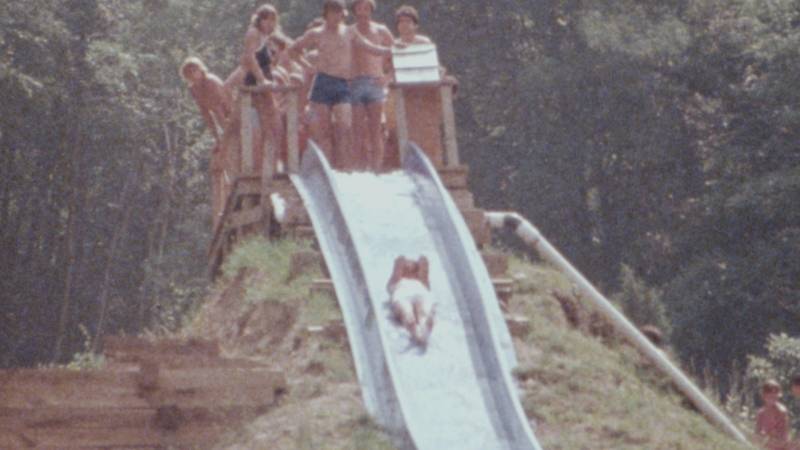There’s a species of giddy nostalgia that involves laughing off what you barely survived. It can be even more powerful if, at the time, you didn’t know how lucky you got. It’s the nostalgia of near-miss childhood accidents and times you almost set the house on fire, and of things that fell from the ceiling a foot from your head. It’s also the nostalgia of the new documentary Class Action Park.
Made by Seth Porges and Chris Charles Scott, the film chronicles Action Park, the New Jersey waterslide park that opened in 1978, enjoyed great popularity in the 1980s and is now remembered in part for the injuries and deaths that gave it its nickname and contributed to knocking it out of business in 1996. Some parks have themes like the Wild West or futurism or countries of the world; Action Park’s theme was deregulation. With roots in Wall Street arrogance and an apparent ability to wiggle around any legal obstacle its leadership encountered, the park was built around one question: Who says we can’t?
Not surprisingly, it was very popular with teenagers, many of whom have a similar philosophy but not the money to translate it into physical reality. It was run by kids, too. Employees (mostly boys) who are now middle-aged men remember workers as young as 14, in flagrant violation of labor laws, being put in charge of operating rides that were unsafe to begin with. According to those who were there, the rides—built without relevant know-how or concern for safety, but with lots of drive to make everything more exciting—took out teeth, dislocated shoulders, gashed foreheads and laid down friction burns all along arms and legs.
More importantly, the film says, people died. Three drowned in the wave pool. One was thrown from a ride onto rocks the park had been told to remove. One was electrocuted after falling into water near submerged machinery. The park had to buy its own ambulances, so thoroughly was it monopolizing local emergency-response resources.
To top it all off, the liability insurance the park supposedly had was with a company park owner Gene Mulvihill set up for himself in the Cayman Islands. According to this telling, if you sued, he fought. If you won, he didn’t pay until the marshals came to the park to collect. All told, this could have been a film with the fully dark tone of an Alex Gibney exposé, but it isn’t that.


9(MDAxOTAwOTE4MDEyMTkxMDAzNjczZDljZA004))

